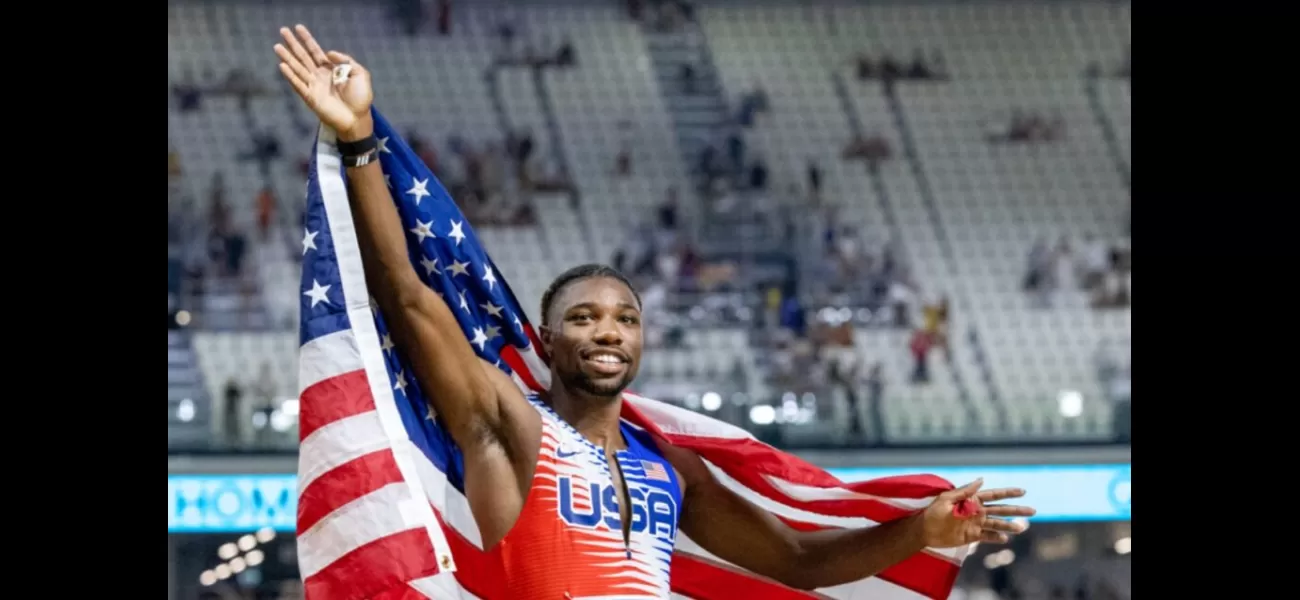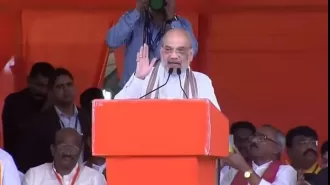After admitting he had COVID-19, Noah Lyles received backlash for attending a party.
Despite testing positive for COVID-19, Noah Lyles' 200-meter dash at the Paris Olympics sparked controversy over the organizers' handling of the virus.
August 12th 2024.

The recent events surrounding Noah Lyles, the talented sprinter from the United States, have sparked controversy and criticism towards the officials of the Paris Olympics. After testing positive for COVID-19, Lyles still competed in the 200-meter dash and was praised for his determination and resilience. However, a video of him allegedly partying has now emerged, causing many to question his actions and the handling of health protocols at the Olympics.
While the exact date of the video is unclear, it is believed to have been taken after the 200-meter finals on August 8th. This raises concerns as Lyles had tested positive for COVID-19 on August 6th, just two days prior. According to medical experts, the anti-viral drug Paxlovid, which Lyles took, is designed to work within a five-day window. This means that Lyles may have been COVID-positive when he won the 100-meter dash, putting his opponents and other athletes at risk.
On August 11th, Lyles shared a negative COVID-19 test result on his social media, with the caption "Thank God, I am Covid-free." This quick recovery has led many to question the severity of his illness and even mock him for using it as an excuse for his loss in the 200-meter race. However, sources close to Lyles have stated that he isolated himself in a hotel, took Paxlovid, and tried to rest and hydrate as much as possible. As an athlete with asthma, Lyles was at a higher risk for serious complications, but he never considered not competing in the event.
Arthur L. Caplan, an expert in medical ethics, believes that leaving the decision to compete at the Olympics solely up to the athletes is irresponsible. He argues that their focus is on winning, and they may not be considering the potential harm they could cause to themselves and others. The purpose of having health and medical expertise at the Olympics is to protect the well-being of all participants, and this decision goes against that duty.
It is reported that Lyles is one of 20 Olympic athletes who have tested positive for COVID-19, and the actual number may be higher as some may not show symptoms. This highlights the lax approach towards the virus, not just by Lyles but also by the officials at the Olympics. Dr. Ziyad Al-Aly, a researcher and doctor based in St. Louis, believes that the decision to reduce the isolation period from 10 to 5 days is politically motivated and goes against the science of infection.
Nathan Crumpton, an athlete who competed in the 2020 Tokyo Olympics and now suffers from long COVID, expressed his disappointment with Lyles' actions in an interview with CNN. He believes that Lyles put his competitors and others at risk by attending a party and not following proper protocols. Dr. Isabell von Loga, one of Crumpton's doctors, also highlighted the potential long-term effects of COVID-19 and how it affects the entire body.
In conclusion, the controversy surrounding Lyles highlights the need for stricter protocols and better management of the health of athletes at the Olympics. While Lyles may have recovered quickly and won a medal, it is important to consider the potential consequences of his actions on himself and others. The pandemic is far from over, and it is crucial to prioritize the safety and well-being of all individuals involved in the games.
While the exact date of the video is unclear, it is believed to have been taken after the 200-meter finals on August 8th. This raises concerns as Lyles had tested positive for COVID-19 on August 6th, just two days prior. According to medical experts, the anti-viral drug Paxlovid, which Lyles took, is designed to work within a five-day window. This means that Lyles may have been COVID-positive when he won the 100-meter dash, putting his opponents and other athletes at risk.
On August 11th, Lyles shared a negative COVID-19 test result on his social media, with the caption "Thank God, I am Covid-free." This quick recovery has led many to question the severity of his illness and even mock him for using it as an excuse for his loss in the 200-meter race. However, sources close to Lyles have stated that he isolated himself in a hotel, took Paxlovid, and tried to rest and hydrate as much as possible. As an athlete with asthma, Lyles was at a higher risk for serious complications, but he never considered not competing in the event.
Arthur L. Caplan, an expert in medical ethics, believes that leaving the decision to compete at the Olympics solely up to the athletes is irresponsible. He argues that their focus is on winning, and they may not be considering the potential harm they could cause to themselves and others. The purpose of having health and medical expertise at the Olympics is to protect the well-being of all participants, and this decision goes against that duty.
It is reported that Lyles is one of 20 Olympic athletes who have tested positive for COVID-19, and the actual number may be higher as some may not show symptoms. This highlights the lax approach towards the virus, not just by Lyles but also by the officials at the Olympics. Dr. Ziyad Al-Aly, a researcher and doctor based in St. Louis, believes that the decision to reduce the isolation period from 10 to 5 days is politically motivated and goes against the science of infection.
Nathan Crumpton, an athlete who competed in the 2020 Tokyo Olympics and now suffers from long COVID, expressed his disappointment with Lyles' actions in an interview with CNN. He believes that Lyles put his competitors and others at risk by attending a party and not following proper protocols. Dr. Isabell von Loga, one of Crumpton's doctors, also highlighted the potential long-term effects of COVID-19 and how it affects the entire body.
In conclusion, the controversy surrounding Lyles highlights the need for stricter protocols and better management of the health of athletes at the Olympics. While Lyles may have recovered quickly and won a medal, it is important to consider the potential consequences of his actions on himself and others. The pandemic is far from over, and it is crucial to prioritize the safety and well-being of all individuals involved in the games.
[This article has been trending online recently and has been generated with AI. Your feed is customized.]
[Generative AI is experimental.]
0
0
Submit Comment





